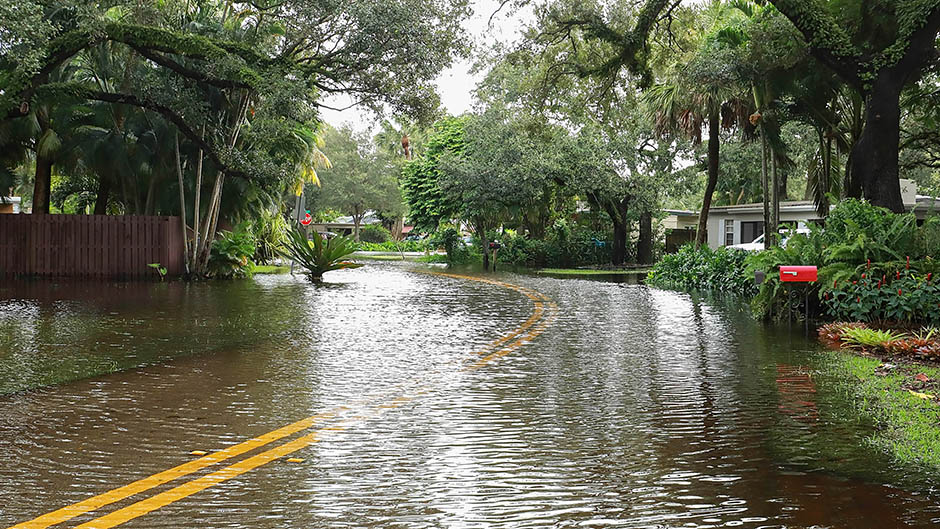At the University of Miami Patti and Allan Herbert Business School—located in a region where seawater levels are closely monitored—climate change is a looming threat, as well as a business opportunity.
This is why Miami Herbert offers a Master of Science in Sustainable Business program, headed by Professor of Economics David Kelly.
“I’m a solutions-focused kind of guy,” said Kelly, academic director of the MS in Sustainable Business since 2018. “What can we do about climate change? Companies can do things that have a positive impact, and I’m happy to be involved in that journey.”
The STEM-certified MS in Sustainable Business unites business, science, theory, and practice to provide a forward-thinking foundation for those focused on where the world is headed.
Kelly warned that some students might find his program “rigorous” in light of its STEM certification.
“We’re going to run the numbers—how much money do you make, how good is this for the environment? You do have to crunch the numbers correctly and you have to make your case with numbers.
“There are some students who say, `We’re not great with numbers!’” Kelly continued. “We can teach you that stuff. It’s not an innate intelligence test. You can’t be afraid of numbers, but you don’t have to be an expert.”
A professor with a Ph.D. in economics from Carnegie Mellon University, Kelly lists environmental economics, regulation, and risk management among his teaching interests. In Kelly’s view, the one-year MS in Sustainable Business attracts students for whom a “win/win is key, meaning you can make money and improve the environment.”
The Better World MBA Ranking lists Miami Herbert as No. 3 nationally and No. 15 internationally, in terms of business sustainability education.
In a clear sign that sustainable business is a concept that’s gathering momentum, on October 23, the Biden administration made South Florida one of the United States’ 31 “tech hubs.” South Florida–Miami-Dade, Broward, Monroe, and Palm Beach counties–was specifically designated a Climate Resilience hub that will focus on sustainable- and climate-resilient infrastructure.
Kelly teaches MS in Sustainable Business students that companies fighting climate change fall into two broad groups. The ‘mitigation’ contingent primarily focuses on preventive measures such as reducing carbon emissions, while the ‘adaption and resilience’ group aims to limit climate change impacts already present. An example of the latter would be a firm that’s seeking to curtail the street flooding that plagues Miami Beach and downtown Miami following heavy thunderstorms.
“Most companies look at the mitigation part of it, things like using less electricity and fuel and relying more on solar energy sources. In Miami, the adaption and resilience part is very front and center, because sea level rise is already present here.”
Speaking of corporations, the MS in Sustainable Business has 17 companies on its advisory council, including Royal Caribbean International, Ernst & Young, and Bacardi Limited.
“The advantage of this program is that it is a master’s in business,” Kelly said. “There is a job market for this.”
With that in mind, Kelly divides MS in Sustainable Business students into groups of four to six, then pairs them with a business that they execute consulting work for.
“It gives them that real-world experience with corporate consulting,” Kelly said of his students, who work under the watchful gaze of Miami Herbert faculty members. “Consulting companies like to hire our graduates, because of the consulting projects they do.”
Bottom line, when students seek a Master of Science in Sustainable Business at Miami Herbert, “they’re doing it in a city that cares, they’re doing it at a university that cares, and they’re doing it at a business school that cares,” Kelly said. “This is all because we’re citizens of Miami, which is ground zero.”

